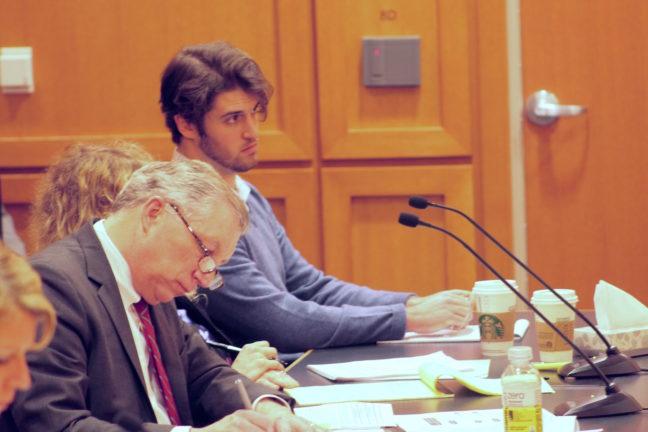On Oct. 21, 2016, one brave woman came forward to report her sexual assailant. By the spring semester of the same year, the name Alec Cook was nearly impossible to miss in local, state and national media.
The former University of Wisconsin student pleaded guilty to five felony charges Feb. 21, including three counts of third-degree sexual assault, one of strangulation and one of stalking. The remaining 16 charges were dropped as a result of the plea deal.
Across the campus and country, many continue to question the university’s methods for handling sexual assault cases, prompting responses from Chancellor Rebecca Blank and UW System President Ray Cross. Though their responses provide some answers for those questioning the role of the university in sexual assault incidents, they do not offer a complete solution. But this plea deal signals a change in the disturbing and pervasive culture of condoning sexual predators.
The sentencing hearing following the Cook plea has the opportunity to shift the paradigm when it comes to legal ramifications associated with sexual assaults on college campuses. The last two students to be similarly charged, Nicholas Ralston and Nathan Friar, faced consequences far less severe than the actions warranted. Based on similar cases of sexual assault on college campuses, like that of Brock Turner, there is reason to believe Cook’s victims may never see justice.
Prior to Wednesday’s plea deal, judges granted a change-of-venue motion to Cook and his defense team, who claimed intense media coverage would make it difficult to find an impartial jury in Dane County.
Additionally, the court declared last month the evidence found in notebooks seized from Cook’s apartment in October 2016 inadmissible in court. The notebooks contained detailed entries of his encounters with various women including their names, physical appearances, interests, subjects they were studying and more. These combined motions provided a perceived edge for the defense even before the trials were set to begin. The wave of motions granted for Cook’s legal team raise significant questions as to why they would enter a plea deal after such a demonstrated effort to provide Cook with significant legal advantage.
Cook will then undergo a pre-sentence investigation by the Wisconsin Department of Corrections, but the official sentencing date has yet to be determined. Cook faces the potential of a 39.5 year prison sentence, up to $95,000 in fines and will be required to register as a sex offender. This plea essentially resolves the case, as the rest of the charges against Cook will be dropped. But they still can be considered during sentencing, which may lead to a harsher, yet more correct punishment of the defendant.
Cook’s plea deal puts Wisconsin at the precipice of change — granting the legal system prime position to diverge from their current trends and set forth a new precedent of how sexual predators on college campuses will be punished.
The Editorial Board serves to represent the voice of the Badger Herald editorial department, distinct from the newsroom, and does not necessarily reflect the views of each staff member.


